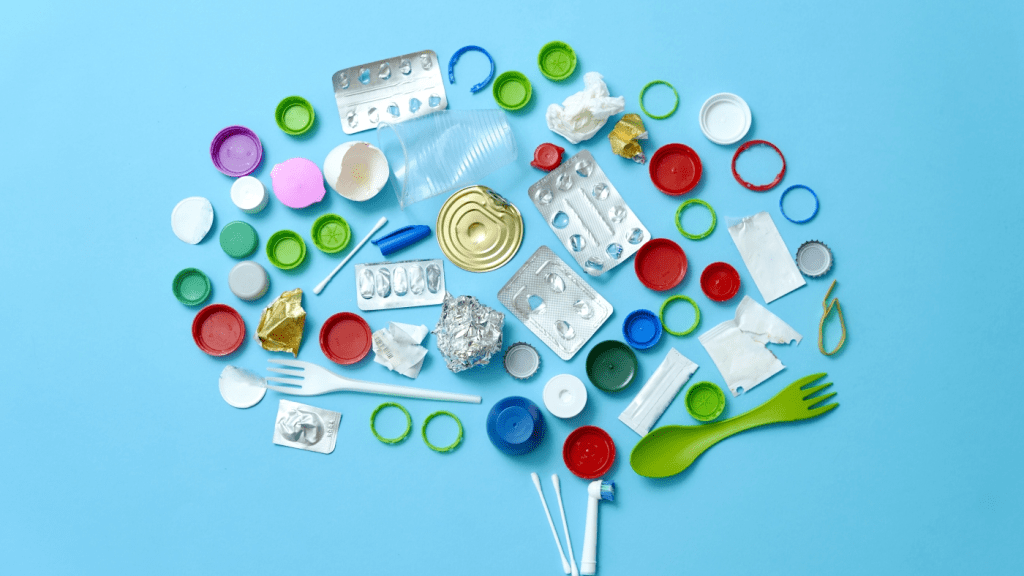Did you know your brain has its own self-cleaning system? Yep, while you’re deep in dreamland, your brain goes into janitor mode—flushing out toxic waste that builds up during the day. Neuroscientists say this process is key to keeping your brain sharp, and it might even help prevent dementia and Alzheimer’s disease. So, if better sleep could be your brain’s best defense, how exactly do you make the most of it?
Let’s break it down.
What Is Brain Waste and Why Should You Care?

Think of your brain like a high-performance engine. All that thinking, processing, and memory-making produces waste—specifically metabolic byproducts like beta-amyloid. This sticky stuff is infamous for piling up in the brains of people with Alzheimer’s.
If your brain doesn’t clear out this trash regularly, it starts to clog the system. Neurons can’t communicate properly, inflammation sets in, and cognitive decline creeps up. Basically, brain waste is the silent troublemaker behind many age-related mental issues.
The Glymphatic System: Your Brain’s Overnight Janitor
Here’s where the magic happens.
Neuroscientist Dr. Maiken Nedergaard from the University of Rochester discovered the glymphatic system—your brain’s own plumbing network. It acts like a cleaning crew, flushing out harmful waste when you’re asleep. And it doesn’t just tidy up a little—it goes full power wash mode, especially during deep sleep (a stage known as slow-wave sleep).
The key takeaway? If you skimp on deep sleep, your brain doesn’t get cleaned. And that, over time, could lead to bigger problems.
How to Boost Your Brain’s Detox Power
Want to help your brain stay squeaky clean? Here’s how:
Video : What Does Alzheimer’s Do to the Human Brain?
1. Make Deep Sleep a Priority
Let’s be real—sleep is underrated. You might get your 7–9 hours, but are you getting quality sleep?
To improve your sleep depth:
- Stick to a regular bedtime and wake-up time.
- Keep your bedroom cool, quiet, and dark.
- Avoid caffeine late in the day.
- Cut off screens an hour before bed to help your body produce melatonin.
The deeper you sleep, the harder your glymphatic system works to clear the junk out of your brain.
2. Sleep on Your Side
This one’s weird but fascinating.
Animal studies show that sleeping on your side helps the glymphatic system do its job more effectively. Back or stomach sleeping? Not so helpful.
So, if you’re a side sleeper—you’re already ahead of the game. If not, try switching it up with a supportive pillow or mattress adjustment. Your brain will love the extra help.
3. Drink More Water
Your brain is 75% water, and hydration is critical for keeping everything flowing smoothly—including the glymphatic system.
Dehydration slows blood flow, which means less efficient waste removal. Aim for 8 cups of water a day and more if you’re active or live in a hot climate. Add a pinch of sea salt or squeeze of lemon for an added hydration boost.

4. Move Your Body, Help Your Brain
Exercise isn’t just about muscles or weight loss. It boosts circulation, supports oxygen flow, and helps the brain work better—especially its ability to flush out waste.
Just 30 minutes of brisk walking, biking, or swimming five days a week can improve your sleep and brain health at the same time. Win-win.
5. Cut Back on Alcohol and Smoking
These habits are major glymphatic saboteurs. Alcohol disrupts deep sleep, while smoking reduces oxygen supply to the brain. That combo makes it harder for your brain to clean itself.
Want to age gracefully with your memory intact? Consider ditching these for good. Your brain, lungs, and liver will all be grateful.
6. Support Your Brain With the Right Foods
While not directly related to waste clearance, certain nutrients help your brain stay healthy:
- Omega-3s from fish or flaxseed
- Antioxidants from berries, leafy greens, and dark chocolate
- Magnesium and vitamin D to support sleep and nerve health
Think of these as fuel for your brain’s nighttime maintenance crew.
Why This Matters More Than Ever
Dementia rates are climbing, and scientists are racing to understand why. One major theory? Years of poor sleep and stress leave our brains vulnerable to waste buildup.
Video : What You Can Do to Prevent Alzheimer’s
If you want to protect your memory and stay mentally sharp well into your later years, now’s the time to start taking your sleep hygiene seriously.
Final Thoughts: Sleep Isn’t Just Rest — It’s Brain Maintenance
Your brain is doing more than dreaming when you sleep—it’s washing itself clean, prepping for a new day of focus, energy, and creativity. So instead of seeing sleep as downtime, start seeing it as essential maintenance.
Small daily habits like going to bed on time, sleeping on your side, drinking more water, and getting a little exercise can all boost your brain’s natural detox system.
It’s never too late to start treating your brain like the masterpiece it is.
Tonight, don’t just sleep—sleep with purpose. Your future brain will thank you.


